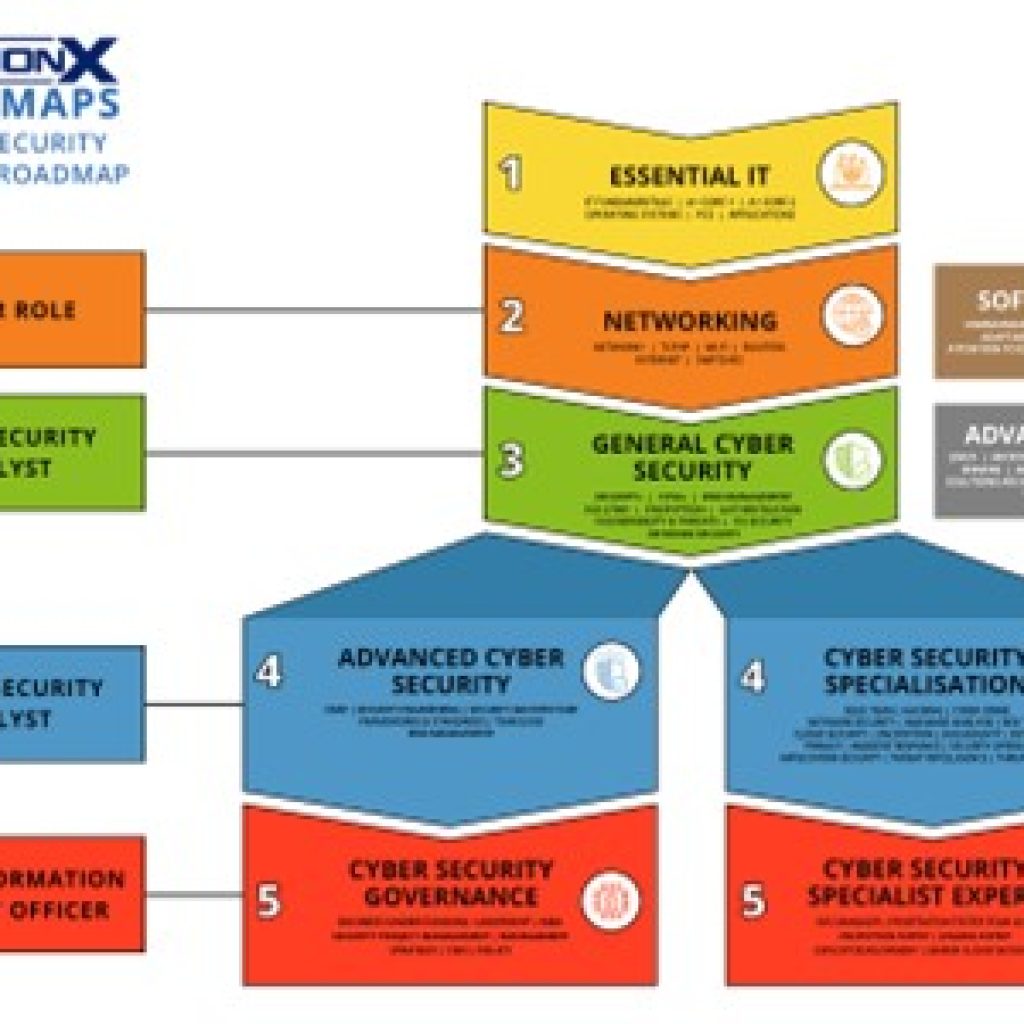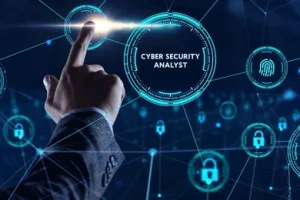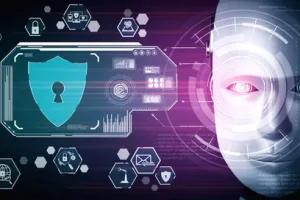
What is a Cybersecurity Analyst?
- Posted by 3.0 University
- Categories Cyber Security
- Date December 4, 2024
- Comments 0 comment
Cybersecurity Analyst Career Guide:
It’s time we had dived into the illustrious and scintillating sphere of cybersecurity. The more we did that, the more we explore, with newer dimensions to organisations’ benefits. Thus, here’s a coherent guide to ‘what is cyber security analyst?’, ‘how to become cybersecurity analyst?’, ‘role of cybersecurity analyst’, ‘is coding required for cyber security?’, and ‘cyber security analyst job description’
In a realm that’s amply and aptly digital, the need for experts who are adroit enough to handle information security is extensive and exemplarily high. The job of a cybersecurity analyst has become crucial in keeping companies safe from cyber threats and protecting sensitive information.
This job includes many tasks, such as overseeing network activity, spotting weaknesses, and putting security steps in place to prevent attacks. Looking at the professional resumes shows the different skills needed for this job, which include knowing about network security, ethical hacking, and examining data for unusual patterns.
The roadmap also outlines the career path for future analysts, emphasizing the importance of strong analytical skills and understanding security principles over coding knowledge.
In the end, a cybersecurity analyst acts as a key protector in the digital world, making their position crucial in keeping electronic data safe from changing threats.

Definition and Importance of Cybersecurity Analysts
The job of cybersecurity analysts is more important now in our digital world, where organizations deal with new threats from smart cybercriminals. These workers are in charge of keeping private information safe by putting in place methods that guard networks and data from attacks.
They look at security practices, find weaknesses, and create fixes to help make organizations strong against attacks. Their work is crucial because they are the first shield against cyber dangers.
Recent studies indicate that being proactive and putting money into a full cybersecurity plan are key for title and settlement services companies to secure their work and keep client trust. “Staying proactive and investing in a comprehensive cybersecurity strategy are essential for title and settlement services agencies to protect their operations and maintain client trust.” (The Legal Description).
This shows the steps that cybersecurity analysts need to take. In addition, the wide range of skills needed—from spotting threats to understanding network rules—highlights the complicated nature of their roles.
As digital dangers continue to grow, there is an increasing need for skilled cybersecurity analysts, who play a crucial role in today’s security systems, as indicated by structured insights.
The Role of a Cybersecurity Analyst
In a world that is more digital, the role of cybersecurity analysts is very important. These workers help keep an organization’s sensitive data safe by finding weak spots and reducing possible risks. Their jobs include checking current security practices, looking at network traffic for strange activities, and handling security problems with smart responses.
Arizona’s Attorney General Tim Griffin points out that adding new cybersecurity staff greatly boosts a government office’s ability to shield citizens from cyber dangers, showing how vital these jobs are for national safety.
Also, having a broad base in IT and networking is key, as mentioned in the planned guide for cybersecurity careers.
This guide helps future analysts learn necessary skills, stressing the importance of knowledge in risk management and incident response. As the need for cybersecurity skills grows, people in this area will continue to be essential for securing digital assets and ensuring organizations remain strong.
Key Responsibilities and Daily Tasks
In the fast-changing area of cybersecurity, workers watch over and protect the digital assets of organizations. A usual day includes looking at system weaknesses and quickly reacting to threats, using various tools and software for thorough assessments of risks.
Analysts do regular security checks and mock attacks to keep networks safe, which helps the organization be stronger against cyber threats.
About Image, the tasks of a Junior Cyber Security Analyst show active involvement in improving intrusion detection systems, showing how simple tasks turn into more complicated jobs over time.
Moreover, analysts must find current risks and create plans to reduce future threats, requiring both technical skills and good analytical thinking.
As a result, this role includes a constant cycle of watching, evaluating, and improving security actions to keep up with the changing threat environment, highlighting the important role cybersecurity analysts play in today’s information security systems.
Responsibility | Description | Importance |
Monitoring Network Traffic | Analyzing data from networks to identify suspicious activities or potential threats. | High |
Incident Response | Responding to security breaches or attacks, mitigating risks, and recovering data. | Critical |
Vulnerability Assessment | Regularly assessing systems and networks for security vulnerabilities and weaknesses. | High |
Security Audits | Conducting periodic reviews of systems and policies to ensure compliance with security standards. | Moderate |
Malware Analysis | Analyzing malware and other threats to understand their behavior and impact. | High |
User Training and Awareness | Educating employees about cybersecurity best practices to prevent security incidents. | Moderate |
Cybersecurity Analyst Responsibilities and Daily Tasks
Pathways to Becoming a Cybersecurity Analyst
Aspiring cybersecurity analysts usually go on a complicated journey that combines education, hands-on experience, and important certifications.
This journey often starts with getting a degree in computer science or something similar, where students learn the basics of programming, networking, and system administration.
For example, future candidates might learn about security protocols through classes, which sets them up for practical roles.
Practical experience, often gained through internships or entry-level jobs such as network administrators or IT support, is crucial as it exposes candidates to real-world security issues.
After that, certifications such as CompTIA Security+ or Certified Information Systems Security Professional (CISSP) improve job readiness by proving necessary skills and industry knowledge.
The clear progression outlines the skill mastery and specialization required to thrive in various cybersecurity areas, ultimately guiding individuals on a career path that is both rewarding and crucial for safeguarding digital systems.
Educational Requirements and Certifications
In the fast-changing area of cybersecurity, having the right education and certifications helps new analysts. Usually, a bachelor’s degree in computer science, information technology, or something similar is important because it gives candidates basic technical know-how and a good grasp of computer systems.
Additional certifications improve job chances and prove skills, which are important in a tough job market. The field respects well-known options like Certified Information Systems Security Professional (CISSP), Certified Information Security Manager (CISM), and CompTIA Security+.
These certifications show a dedication to career growth and cover important topics like risk management and security governance. This educational background plays a crucial role in resumes, as demonstrated by a Cyber Security Analyst who highlights their relevant degrees and certifications, thereby reinforcing their skills and capability for challenging cyber tasks.
Degree | Certifications | Duration | Average Salary | Job Outlook |
Associate Degree in Cybersecurity | CompTIA Security+, Certified Ethical Hacker (CEH) | 2 years | $50,000 | 11% growth (2020-2030) |
Bachelor’s Degree in Cybersecurity | CompTIA Security+, Certified Information Systems Security Professional (CISSP) | 4 years | $85,000 | 11% growth (2020-2030) |
Master’s Degree in Cybersecurity | Certified Information Security Manager (CISM), Certified Information Systems Auditor (CISA) | 2 years | $110,000 | 11% growth (2020-2030) |
Bootcamp Training | CompTIA Security+, GIAC Security Essentials (GSEC) | 3-6 months | $65,000 | 11% growth (2020-2030) |
Educational Requirements and Certifications for Cybersecurity Analysts
Conclusion
In a nutshell, a cybersecurity analyst operates on and effectively performs a varied range of tasks, requiring both technical skills and soft skills such as communication and problem-solving. The demand for these analysts grows due to the complex cyber threats organizations now face. People wanting this career should build a strong educational base, starting with degrees in Computer Science or Cybersecurity, as well as certifications that add to their skills.
The clear path for those aiming to become cybersecurity experts shows the shift from basic IT skills to the higher-level specialties needed for expert roles, demonstrating how the field changes over time [citeX].
Additionally, the resumes of people like Taylor Foster and those shown in other examples stress the real-world experiences and skills needed for success. In the end, understanding the variety of tasks and qualifications needed for cybersecurity analysts will help newcomers deal with the ever-changing cybersecurity landscape better [extractedKnowledgeX].
The Future of Cybersecurity Analysts in an Evolving Digital Landscape
It’s evident that technology is progressing faster than imagined ever, indicating a substantial increase in the need for cybersecurity analysts. In a changing digital world with more complex cyber threats, these experts will be key in protecting sensitive data and keeping systems secure.
The move toward a more connected digital economy requires a varied approach to security that includes not just technical skills but also knowledge of rules and risk management. Cybersecurity analysts must be skilled in new technologies like artificial intelligence and machine learning to improve how they detect threats.
Additionally, insights from thorough career paths, like those found in [citeX], will be important for new analysts to guide their growth effectively.
In the end, the future of cybersecurity analysts depends on their ability to adjust to new issues while using technological advancements to shield organizations from possible risks.

You may also like

How to Become a SOC Analyst?

How to protect seniors from online scams?

